- Home
- J. D. Robb
Down the Rabbit Hole Page 15
Down the Rabbit Hole Read online
Page 15
“Then make the commitment, Alice. Say you will marry me. That one yes will be as binding to me as any said before a vicar in a church.”
She did not answer him with words. Alice pushed the covers back, slipped from the bed, gathered her clothes and then faced him. “I wonder if women today feel less of an emotional commitment when they make love? Weston, in all the ways that matter I have been yours since that first time we were together. You are the one and only man I will ever love. But the very act of marrying you would mean living with the constant reminder that I am not your equal and never will be.”
Alice left the room, and he was smart enough not to call her back or follow her. One moment of honesty was enough for tonight. She loved him. Would love him forever. He held that thought as closely as he wanted to hold her. And actually fell asleep smiling.
CHAPTER TWELVE
Mr. Arbuckle was waiting for them in the library. Weston wished he had been with them at breakfast, a meal made awkward by the housekeeper’s nonchalance and Alice’s embarrassment. Her discomfort made him so restless it was all he could do not to stand up and prowl the room.
“Good morning!” Mr. Arbuckle announced, rubbing his hands together as if he were preparing to share a special treat. “Is there something specific you would like to do today?”
“I want to go back to my proper time and place,” Alice announced. Her discomfort dimmed some of Mr. Arbuckle’s enthusiasm.
“I am afraid I have no control over that. The coin does, and it is most certainly at the earl’s country house, Westmoreland, far out of our reach.”
“Alice, try not to worry so much.”
“Oh, Weston, that is so easy for you to say. My whole livelihood depends on creating and maintaining a good packet of references. I am so afraid that Miss Amy, despite her best intentions, is ruining the profession I have nurtured so carefully.”
“This is not easy for me to say, my dear.” He sat across from her and leaned forward. “My uncle left the estate a financial disaster. I have been trying to find a way out of the mess.” He looked at Arbuckle and smiled. “But if I am right, then the coal investment will be the solution. It makes me more willing to believe that the gift of this time travel has not been all one-sided.”
“And, so it is, my lord,” Arbuckle agreed. “As I told Miss Amy and Mr. West, this passage through the space-time continuum was always meant to be. What happens here and in 1805 is part of the long-accepted history of your family. You are not changing history in any way.”
Arbuckle stepped closer to Alice. “That is true for you too, Miss Kemp. There is something in this experience that will enrich your life, make it better, make it happier, make you wiser. The magic coin does not deal in misery or unhappiness, nor does it only affect one person. It grants wishes, and one rarely wishes for bad things, now, do they?”
“But we did not wish on the coin,” Alice pointed out with unnecessary asperity.
“You will have a chance to make a wish when you return, and in doing so you can use the insight you have gained in this century to make your world as you would wish it.”
“The world I wish and the world in reality are two very different things.”
“Have faith, Miss Kemp. Have faith that the coin will make your heart’s dearest wish come true.”
She looked at the earl with a question in her eyes.
“Yes, my dearest love, if your wish is to find a life together as man and wife, then my wish is the same.”
“How can you put that before your family and the estate’s needs?”
He shrugged. “Because with you anything is possible.”
Mr. Arbuckle found his hat and bowed to them. “I will leave you to discuss the details of your future. If you should leave before I return I must say that knowing you has been both a pleasure and a unique experience.”
“The feeling is most assuredly mutual,” the earl said, and Alice nodded in agreement. “When you return to the nineteenth century please come to Westmoreland. You will always be welcome.”
“Thank you, my lord,” Arbuckle answered, smiling with delight. “I will see you again then, if not tomorrow morning.”
When he left and it was the two of them alone, they sat together on the settee, holding hands as they had not since they arrived in this time and place.
“This moment is perfect.”
“Yes,” the earl agreed. “I was thinking the same thing. I wish this was our future.”
“Oh, so do I, Weston. So do I.”
Suddenly overcome with an amazing fatigue, they both fell asleep, and their dreams took them home.
* * *
As he awakened, the earl recognized the disorientation, the odd sense of travel with his mind as much as his body, that he’d felt the day before. Weston was not surprised when he opened his eyes and found he was on the settee in one of the salons at Westmoreland, surely in his own time.
Alice was beside him, her head on his shoulder, still sound asleep. He smiled and decided to wait for her to join him in 1805. He looked around the room, at the spot above the shelves that would hold his portrait, where the painting of Venice by Guardi currently hung.
Or should have.
The space was empty, the wallpaper a bit less faded than what surrounded it. Someone had stolen the Guardi! Or had the trustees taken it upon themselves to remove it for sale, to pay the most egregious of the estate debts?
“What is it, Weston?” Alice whispered to him, obviously having woken up and followed his gaze.
“There should be a painting there, and I have no idea why it’s been moved. I will have to investigate or have someone do it for me. What I want to do most now, besides kiss you, is find the coin that has been at the heart of this bizarre adventure.”
“You certainly are not kissing me.” Alice stood, a little unsteady on her feet, but paused a moment and then straightened, smoothing her gown. “Thank goodness I am wearing my own clothes!”
“I rather liked the jeans we wore. They were comfortable.”
“But hardly appropriate for 1805. Nor is my presence alone with you. I must leave this room at once.” She smoothed her hair and looked at the door as if someone would burst in at any moment.
Did she learn nothing in the twenty-first century? he wondered. “Very well, preserve your name for now. But I know you love me, and with that magic coin Arbuckle insists anything is possible, even having you agree to marry me.”
She would have argued, but he took her by the shoulders and turned her around. “If you take that door, it will lead you into a room that is almost never used and you can come out into the passage. Tell the footman you are newly arrived and have lost your way to Lady Anne’s chambers. You will have the day with my sister, and then I will see you at dinner.” He twirled her back around and pressed a kiss to her mouth; a kiss that left no doubt of his intent.
Alice merely shook her head, though Weston thought he saw the ghost of a smile before she gave him her back and hurried to the connecting door.
He watched her leave, the future firm in his mind, then folded his arms across his chest and waited for the magic coin to find him.
In the meantime he decided he would circle the room and try to recall if anything else was missing. He didn’t think anything was.
It was not long before there was a scratch at the door. The butler came in at his “Enter.”
“My lord, I have been trying to find you for the past hour.”
“Really, Stepp, I thought you knew my every move.”
“Yes, sir, but you have been so unpredictable lately.”
“I have?” And he could just guess why. Simon West had had no Arbuckle to help him adjust to 1805.
“I’m sorry, my lord, but yes.”
Weston nodded and moved to sit behind his desk. Not that he was tired, but he had a feeling that it would be
a while before life returned to normal, if it ever did. Sitting at his desk reminded him that he was the final arbiter of all that happened at Westmoreland. And something must have happened, besides the disappearance of the Guardi, or Stepp would not be looking so, um, tense. Yes, tense. He usually never betrayed his sensibilities.
“You have found me now, Stepp, and you have my full attention. What is it that you need?”
“Thank you, my lord.” The man bowed with some formality, which was hardly the norm. “I would never bother you with a domestic issue, but this involves money. A coin, to be precise. And, oh, my lord, Lady Anne has dismissed her maid.” As Stepp spoke he placed a coin, the magic coin, on Weston’s desk.
Weston did his best not to grab the coin and shout for joy. He barely contained his smile. “What a relief,” he thought, aloud, unfortunately.
Stepp looked shocked, and Weston hurried to assure him. “The coin, Stepp. The coin is mine. I brought it from London and somehow it disappeared. I am so relieved that someone found it.” Now he did pick it up and tuck it in his pocket. Please God, it would stay there until he had addressed the other, and to Stepp, far more important issue.
“As for Lady Anne and her maid. Am I right that my sister’s maid is your daughter Martha?”
“Yes, my lord,” Stepp acknowledged without any emotion.
“Did Lady Anne give any explanation for Martha’s dismissal?”
“Not much, my lord.” The butler spoke with asperity, then seemed to recall to whom he was speaking. “I do not mean to sound rude, sir. It was something to do with the coin. One of the maids found it, Martha took it, and it went awry from there.”
“I am sorry it has come to that,” Weston said as he felt the beginnings of a headache. “I will talk with Lady Anne and Martha and see what I can do to help.”
“Thank you, my lord. But you had best know right away that both Lady Anne and her maid are adamant about never working together again.”
“I understand, Stepp. Two strong-minded women.”
“Yes, sir. I do think you understand.” Stepp drew a deep breath, which did not seem to ease the rigidness of his posture. “There are one or two other issues that would benefit from your attention. If you do not think it too impertinent.”
“Never, Stepp. Please go on.”
“First, the coin, my lord. It bears the date 1808, but quite it is only 1805. How can that be?”
CHAPTER THIRTEEN
“Ah, yes.” Weston prayed for inspiration as he pulled the coin from his pocket. “Well, you see, Stepp, the coins are being minted for use in India, as you can probably tell by the foreign wording on it.”
Weston handed him the coin so Stepp could examine it. “Yes, sir, I noticed that. Everyone has.”
“The coin has no value in itself. It is a medium exchange like the paper currency the government is trying to have us use now.”
Stepp nodded.
“The estate has interests in mines in Wales, and the ore from those mines is being used to mint these coins. This is a sample given to me as a gesture of . . .” He hesitated, trying to think of the right word. Stepp was hanging on every detail and, no doubt, this would be the official explanation spread belowstairs.
“The project managers gave it to the trustees and thence to me as a gesture of goodwill and commitment to the process.” In fact they had sent a small, toylike train, but Stepp did not need to know that.
“Thank you, my lord. There has been much speculation belowstairs, up to and including the absurd idea that it is a magic coin.”
Weston smiled and shook his head.
“Would that all headaches were as easily cured,” Stepp said, as he handed the coin back. “Next, my lord, you may not know, but Miss Kemp has been unavailable and sent a replacement, a Miss Amy Stevens. I have no doubt, sir, that Miss Stevens did her best but even I am grateful that she is only temporary. I do hope Miss Kemp will return soon.”
“I do believe that she will be arriving today.”
“Indeed!” Stepp’s relief was profound. “Thank you, thank you very much, my lord.” The butler did relax now and nodded. “I suspect that Lady Anne’s upset with Miss Stevens had much to do with Martha’s abrupt dismissal. I am certain that Miss Kemp’s arrival will ease Lady Anne’s sensibilities.”
“I’m sure,” Weston lied. He was not sure at all. If the day proceeded as he hoped, Alice would be his fiancée very soon, and not someone Anne could order about.
As he spoke, he realized that Martha’s dismissal was probably something for which he and his fellow time travelers were responsible. He must do something to help the maid find a new position.
The idea struck him at the same moment that the coin glittered a brighter gold. Give the servant the coin and send her out to fulfill wishes. Who could resist such a task? Of course, convincing her of the truth of its magic would have to come first.
Stepp had turned to leave the room and literally swayed on his feet. “My lord, where is the Guardi painting that should be hanging on that wall?”
Dear God in heaven, when would this confusion end? The painting. Where had it gone? Had it time traveled? The thought was cynical, but the weight of the coin in his pocket gave him the answer. Weston suddenly knew what had happened to the painting. It was with Miss Amy and Simon West. The painting was what they had taken with them to the twenty-first century when they left the coin behind. So, again, he opted for the truth, or a version of it.
“I do believe it has been stolen.”
“Stolen!”
“Yes.”
“But by whom?”
“I will tell you more when I am certain.” That is, as soon as I think of some way to explain the theft. “In the meantime make a notation in the journal you keep that the painting has been stolen.”
“I will do as you wish, my lord.” Stepp left the room, to find a glass of brandy, no doubt. It’s what Weston wanted. He thanked God and the magic coin for the inspiration of the last few minutes and then begged those same powers not to abandon him anytime soon. He still had more than one person’s world to set right, and he could see he would have to speak carefully to ensure that all the loose ends were done up.
He made a mental list. First, talk to his aunt dowager about the changing times. To him it was a formality he owed his uncle as his heir. His wife, the dowager countess, would need to know that changes were coming. Her support would be welcome but, he reminded himself, not essential. She would be a challenge and best tackled first.
Second, inform his sister that he had every intention of making Alice Kemp his wife and that she would be introduced to society by her sister-in-law rather than assisted by a hireling. Yes, that was the approach to take, but still it would not be easy to convince his status-conscious sister that her servant would be elevated above her by marriage.
Third, put the coin, the locket and the train in the portrait to inform the future that all had gone as he had planned. Perhaps best to do that last, when it was indeed proved that all was going his way. No, he would do it as it came to him. And embrace the conviction that his future with Alice was secure.
The two last items were the most important of all. One, he would be sure that Alice had her wish, and two, trust that it would be the same wish he held so close to his heart. That they had a future together, and love was the key.
If convincing the dowager that Alice was to be made welcome would be a challenge, then convincing Alice herself would be an even greater one.
CHAPTER FOURTEEN
Finding the dowager was easy. At this time of day she would be walking through the garden, dictating to the gardeners—the only place at Westmoreland where she still had authority.
“Good morning, Lady Aunt,” Weston called out, loud enough for half the garden to hear.
“Weston,” she said, quite formally.
“The gardens do a
ppear to be ready to make quite a show.” It was the best that could be said of the space where tulips were the only flowers ready for a vase. “The bulbs from the Dutch seem to be thriving.”
“Yes,” the dowager agreed, “the expense was well worth it. My husband understood those things.”
“The blooms remind me of him every time I see them.”
Those ungodly expensive bulbs were another example of his uncle’s misguided generosity.
“What do you want, Weston?” The dowager sat herself down on the bench and looked up at him. “I cannot imagine you came out here to discuss the garden.”
To the point, he thought. “Very well, though it is always good to share a lovely day with you.”
The old lady’s “Humph” told him that he had overdone it with that heavy-handed compliment.
He sat down next to her but was not so bold as to take her hand. “Times are changing, Lady Aunt, and to survive we must change with them.”
Her body tensed; he did not need to be holding her hand to see that.
“Please listen,” Weston continued. “Times are always changing. King George has remained loyal to his wife and all their children for all these years. That certainly is different from previous monarchs.”
“And he has gone mad for it.”
“Perhaps that is not the best example,” Weston acknowledged. “We no longer need to fear smallpox, and more and more men and women are marrying for love rather than money or power.” Before his aunt could reply he stopped her with a raised hand. “This is my way of telling you that I have every intention of marrying Alice Kemp. We love each other and want a life together. The only thing that is keeping her from accepting my proposal is your disapproval.” That was a slight exaggeration, but his aunt’s opinion was a factor.
“You want my approval?” She looked surprised.
“I value it above most things, but I must tell you that with or without it I will do my best to convince Alice to be the next Countess Weston.”

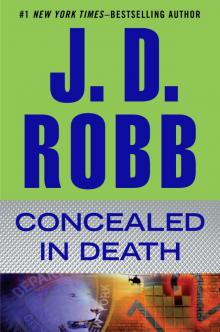 Concealed in Death
Concealed in Death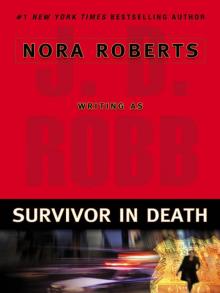 Survivor in Death
Survivor in Death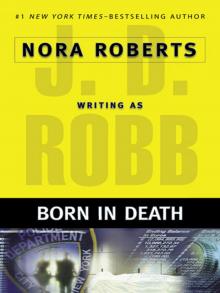 Born in Death
Born in Death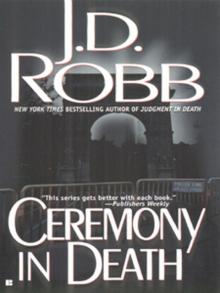 Ceremony in Death
Ceremony in Death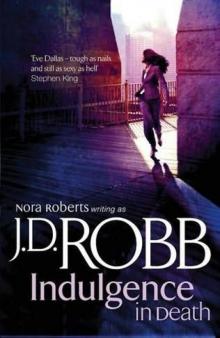 Indulgence in Death
Indulgence in Death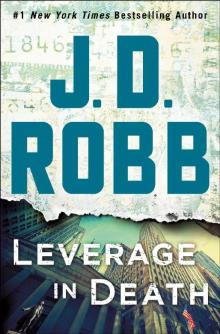 Leverage in Death
Leverage in Death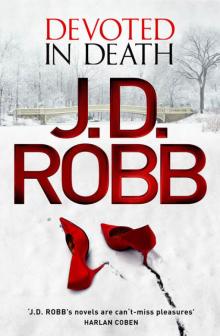 Devoted in Death
Devoted in Death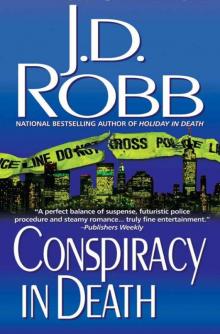 Conspiracy in Death
Conspiracy in Death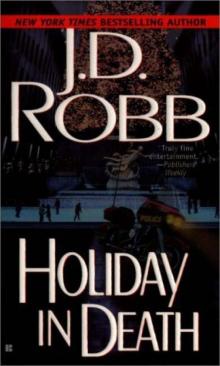 Holiday in Death
Holiday in Death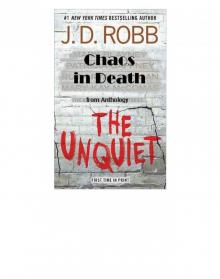 The Unquiet
The Unquiet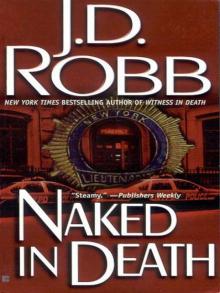 Naked in Death
Naked in Death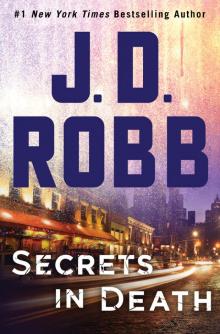 Secrets in Death
Secrets in Death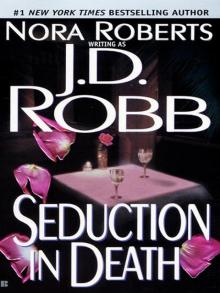 Seduction in Death
Seduction in Death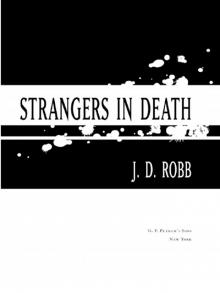 Strangers in Death
Strangers in Death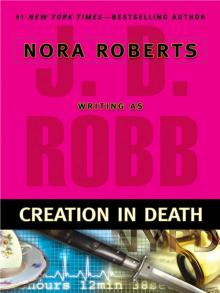 Creation in Death
Creation in Death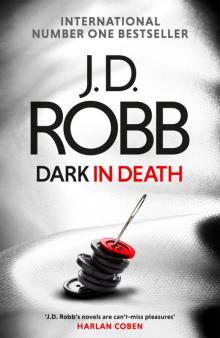 Dark in Death
Dark in Death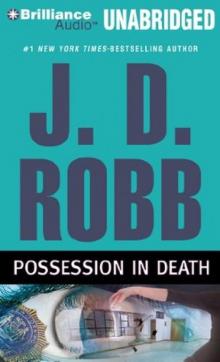 Possession in Death
Possession in Death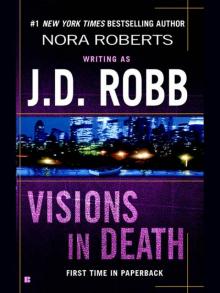 Visions in Death
Visions in Death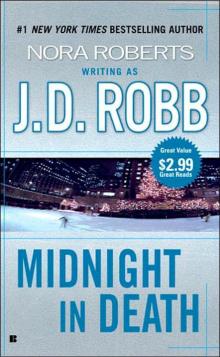 Midnight in Death
Midnight in Death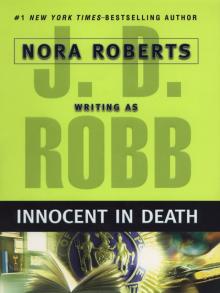 Innocent in Death
Innocent in Death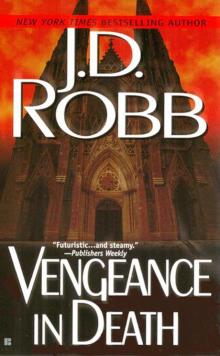 Vengeance in Death
Vengeance in Death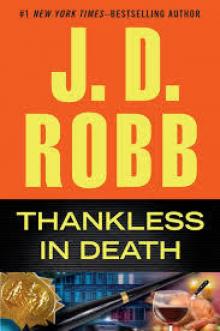 Thankless in Death
Thankless in Death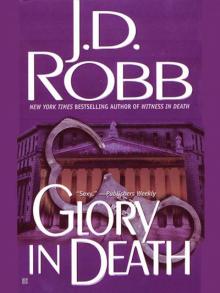 Glory in Death
Glory in Death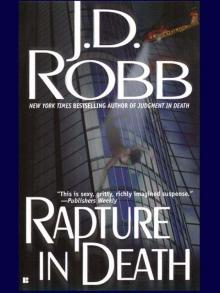 Rapture in Death
Rapture in Death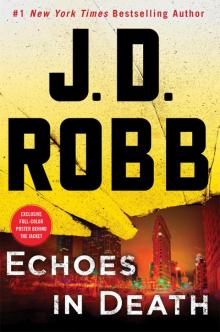 Echoes in Death
Echoes in Death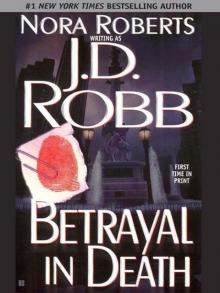 Betrayal in Death
Betrayal in Death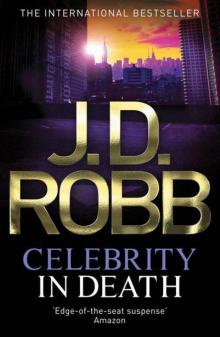 Celebrity in Death
Celebrity in Death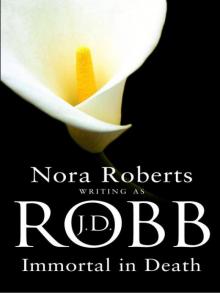 Immortal in Death
Immortal in Death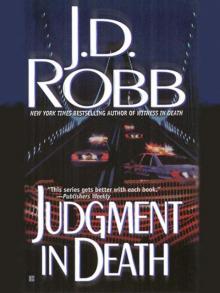 Judgment in Death
Judgment in Death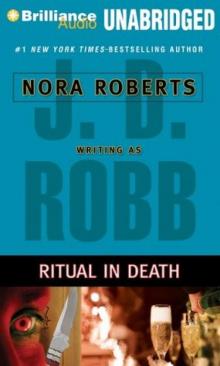 Ritual in Death
Ritual in Death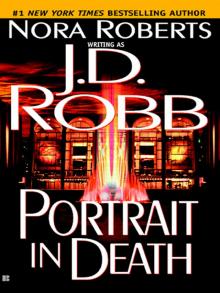 Portrait in Death
Portrait in Death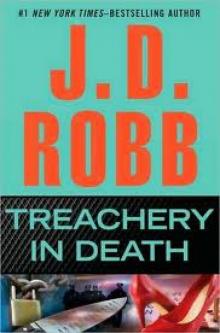 Treachery in Death
Treachery in Death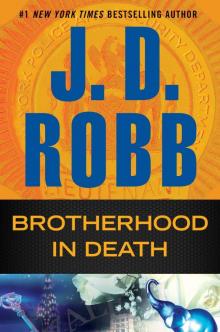 Brotherhood in Death
Brotherhood in Death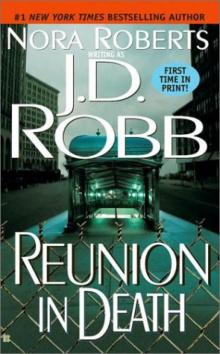 Reunion in Death
Reunion in Death Connections in Death: An Eve Dallas Novel
Connections in Death: An Eve Dallas Novel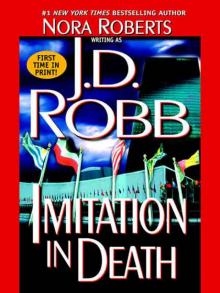 Imitation in Death
Imitation in Death New York to Dallas
New York to Dallas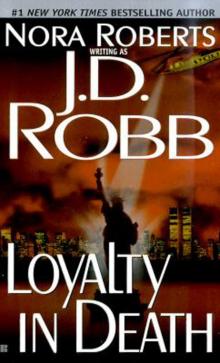 Loyalty in Death
Loyalty in Death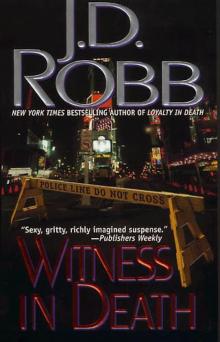 Witness in Death
Witness in Death Connections in Death
Connections in Death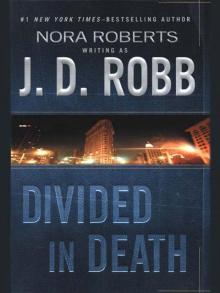 Divided in Death
Divided in Death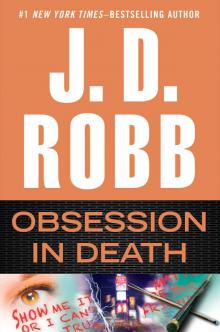 Obsession in Death
Obsession in Death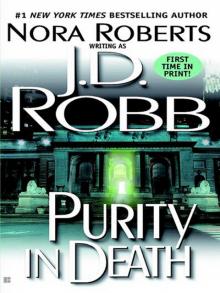 Purity in Death
Purity in Death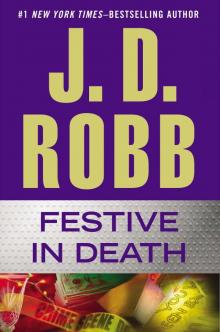 Festive in Death
Festive in Death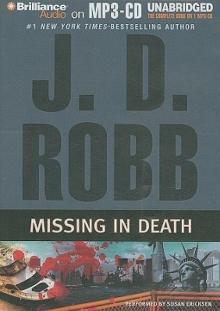 Missing in Death
Missing in Death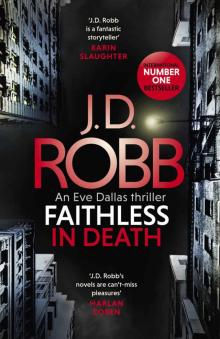 Faithless in Death: An Eve Dallas Thriller (Book 52)
Faithless in Death: An Eve Dallas Thriller (Book 52)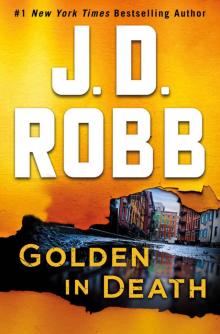 Golden in Death
Golden in Death The In Death Christmas Collection
The In Death Christmas Collection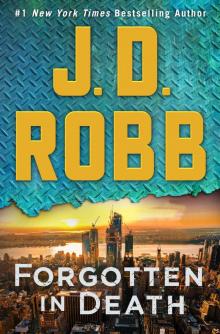 Forgotten in Death
Forgotten in Death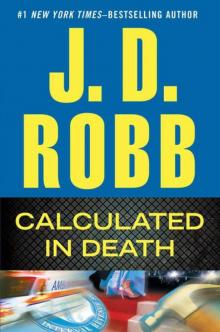 Calculated in Death
Calculated in Death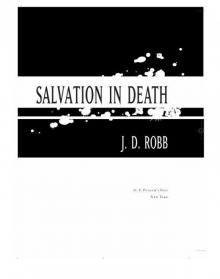 Salvation in Death
Salvation in Death Interlude in Death
Interlude in Death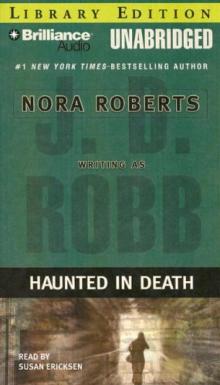 Haunted in Death
Haunted in Death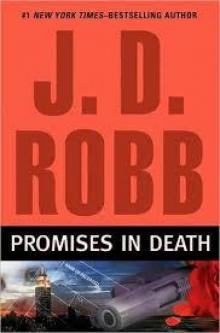 Promises in Death
Promises in Death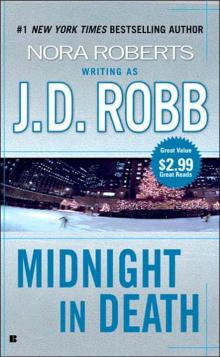 In Death 07.5 - Midnight in Death
In Death 07.5 - Midnight in Death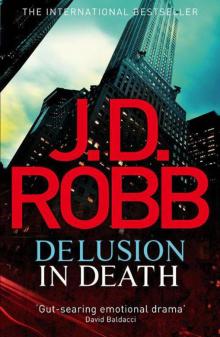 44 Delusion in Death
44 Delusion in Death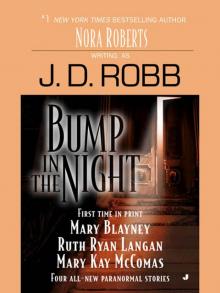 Bump in the Night
Bump in the Night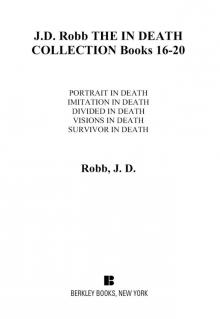 The In Death Collection, Books 16-20
The In Death Collection, Books 16-20![[In Death 17] - Imitation in Death Read online](http://i1.bookreadfree.com/i/03/20/in_death_17_-_imitation_in_death_preview.jpg) [In Death 17] - Imitation in Death
[In Death 17] - Imitation in Death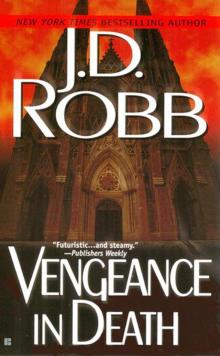 In Death 06 - Vengeance in Death
In Death 06 - Vengeance in Death Dead Of Night
Dead Of Night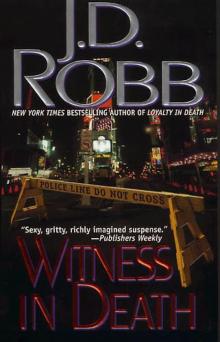 In Death 10 - Witness in Death
In Death 10 - Witness in Death![[In Death 16] - Portrait in Death Read online](http://i1.bookreadfree.com/i1/03/27/in_death_16_-_portrait_in_death_preview.jpg) [In Death 16] - Portrait in Death
[In Death 16] - Portrait in Death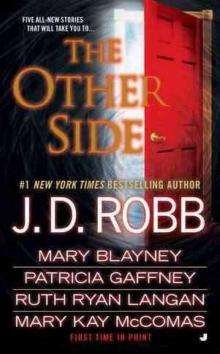 Possession in Death edahr-39
Possession in Death edahr-39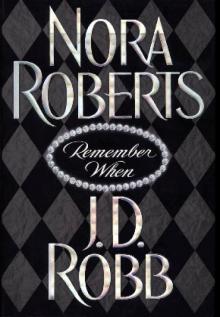 Remember When edahr-20
Remember When edahr-20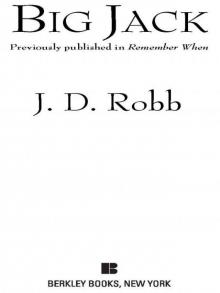 Big Jack
Big Jack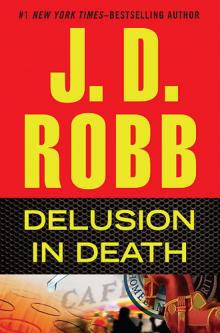 Delusion in Death edahr-44
Delusion in Death edahr-44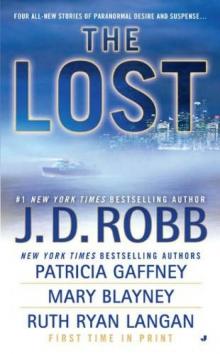 Missing in Death edahr-36
Missing in Death edahr-36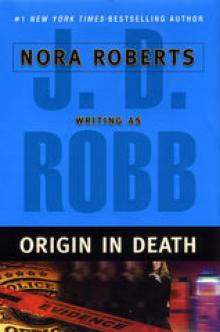 Origin in Death edahr-24
Origin in Death edahr-24![[In Death 18] - Divided in Death Read online](http://i1.bookreadfree.com/i1/04/03/in_death_18_-_divided_in_death_preview.jpg) [In Death 18] - Divided in Death
[In Death 18] - Divided in Death The Lost
The Lost![[In Death 05] - Ceremony in Death Read online](http://i1.bookreadfree.com/i1/04/01/in_death_05_-_ceremony_in_death_preview.jpg) [In Death 05] - Ceremony in Death
[In Death 05] - Ceremony in Death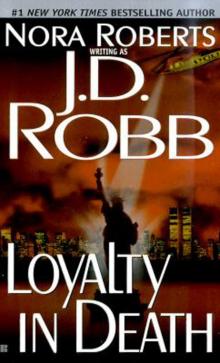 In Death 09 - Loyalty in Death
In Death 09 - Loyalty in Death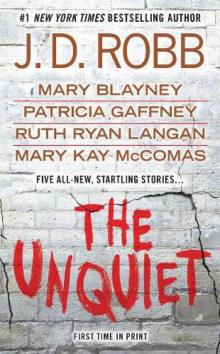 Chaos in Death edahr-42
Chaos in Death edahr-42 In Death 12.5 - Interlude in Death
In Death 12.5 - Interlude in Death![In Death [47] Leverage in Death Read online](http://i1.bookreadfree.com/i1/04/01/in_death_47_leverage_in_death_preview.jpg) In Death [47] Leverage in Death
In Death [47] Leverage in Death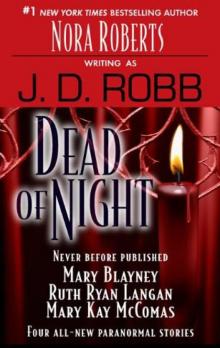 In Death - 24.50 - Dead of Night
In Death - 24.50 - Dead of Night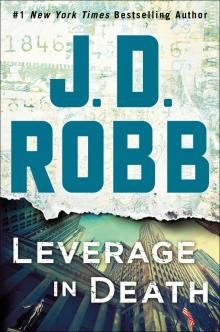 Leverage in Death--An Eve Dallas Novel
Leverage in Death--An Eve Dallas Novel![[In Death 24] - Innocent in Death Read online](http://i1.bookreadfree.com/i1/04/05/in_death_24_-_innocent_in_death_preview.jpg) [In Death 24] - Innocent in Death
[In Death 24] - Innocent in Death![[In Death 15] - Purity in Death Read online](http://i1.bookreadfree.com/i1/04/05/in_death_15_-_purity_in_death_preview.jpg) [In Death 15] - Purity in Death
[In Death 15] - Purity in Death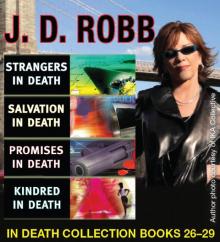 The In Death Collection, Books 26-29
The In Death Collection, Books 26-29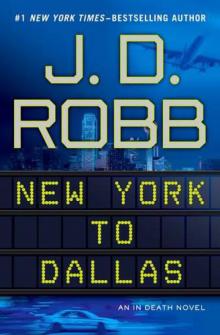 New York to Dallas edahr-41
New York to Dallas edahr-41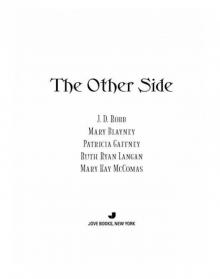 The Other Side
The Other Side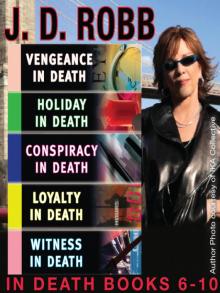 The In Death Collection 06-10
The In Death Collection 06-10![[In Death 08] - Conspiracy in Death Read online](http://i1.bookreadfree.com/i2/04/05/in_death_08_-_conspiracy_in_death_preview.jpg) [In Death 08] - Conspiracy in Death
[In Death 08] - Conspiracy in Death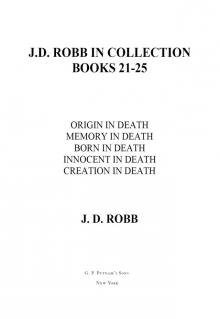 The In Death Collection, Books 21-25
The In Death Collection, Books 21-25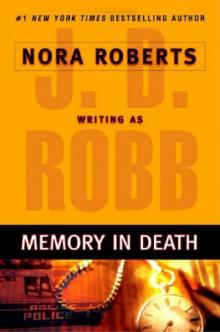 Memory in Death edahr-25
Memory in Death edahr-25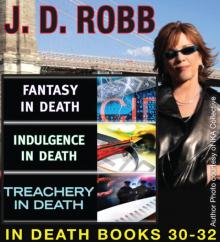 The In Death Collection, Books 30-32
The In Death Collection, Books 30-32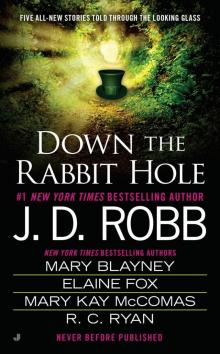 Down the Rabbit Hole
Down the Rabbit Hole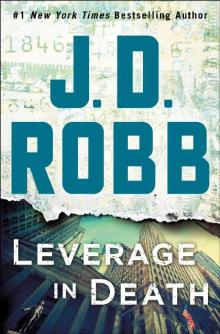 Leverage in Death: An Eve Dallas Novel (In Death, Book 47)
Leverage in Death: An Eve Dallas Novel (In Death, Book 47)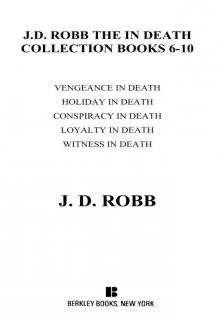 The In Death Collection, Books 6-10
The In Death Collection, Books 6-10 The In Death Collection, Books 11-15
The In Death Collection, Books 11-15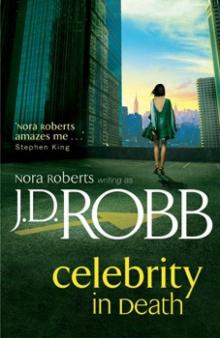 Celebrity in Death edahr-43
Celebrity in Death edahr-43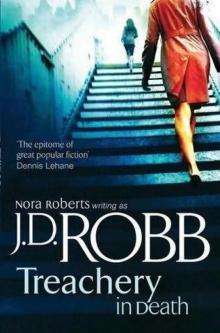 Treachery in Death edahr-40
Treachery in Death edahr-40![[In Death 12] - Betrayal in Death Read online](http://i1.bookreadfree.com/i2/04/13/in_death_12_-_betrayal_in_death_preview.jpg) [In Death 12] - Betrayal in Death
[In Death 12] - Betrayal in Death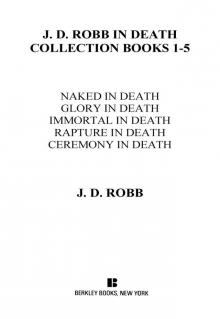 The In Death Collection, Books 1-5
The In Death Collection, Books 1-5